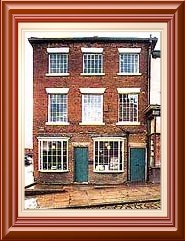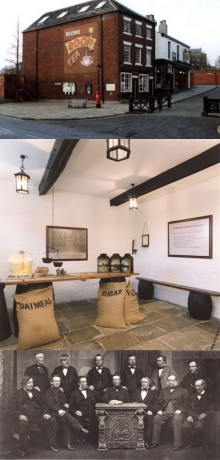 |
|
They scraped together a meagre capital and opened a shop in Toad Lane, where they sold wholesome food at reasonable prices. They called it the ROCHDALE EQUITABLE PIONEERS SOCIETY. Founded on these principles:*One member, one vote; *Equality of the sexes amongst membership; *Only pure provisions should be sold, in full weight and measure; *The allocation of a "divi" (dividend) to members, guaranteeing that all profits were divided pro rata depending on the size of purchases made by individual members. The name Toad Lane has nothing to do with frog-like creatures - it is probably Lancashire dialect for "Th'Owd Lane" (The Old Lane). |

